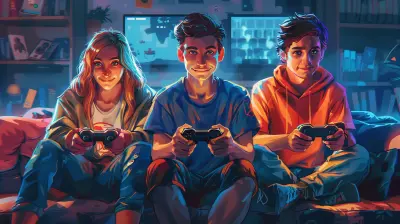How to Spot Signs of Gaming Addiction in Children
27 September 2025
Video games are awesome. Whether it’s the thrill of leveling up, the satisfaction of solving puzzles, or just chilling with friends online — they’re a big part of modern entertainment. For kids, hitting that next high score or unlocking a rare skin can be everything. But like most things in life, too much of a good thing can quickly turn sour. Gaming addiction is real, and it’s creeping into more households than we’d like to admit.
If you're a parent scratching your head, wondering if your child is just a passionate gamer or something more worrying is going on — don’t worry. You’re not alone, and we’ve got your back.
Let’s break it down.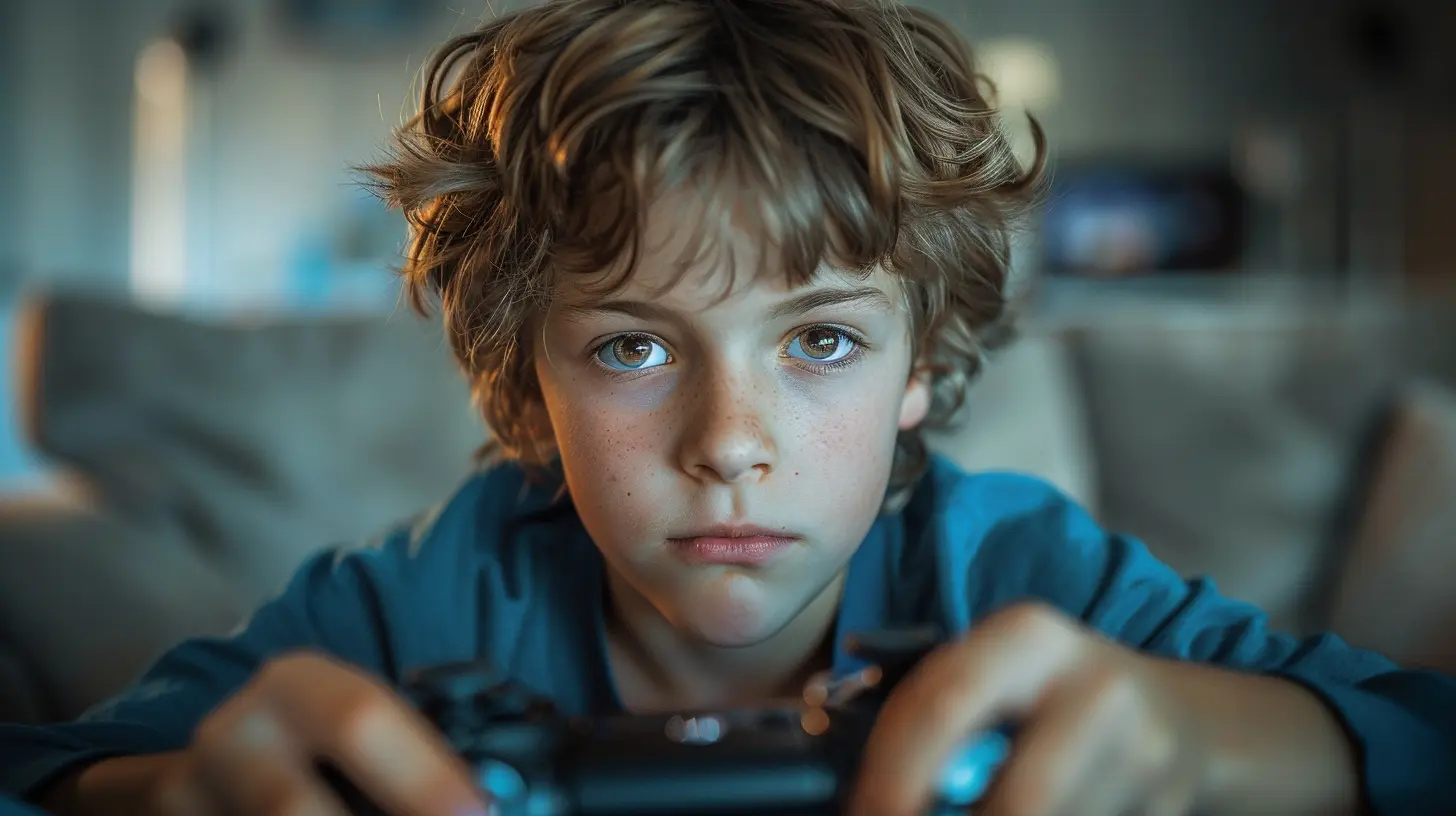
What Is Gaming Addiction, Really?
Gaming addiction isn’t just a kid wanting to play a bit more Fortnite after homework. We’re talking about a pattern of behavior where gaming starts controlling your child’s daily life, emotions, school, and even their sleep. The World Health Organization (WHO) has officially classified "gaming disorder" as a mental health condition. Yep, it’s serious.Simply put: if gaming starts ruling the roost, it’s time to take a closer look.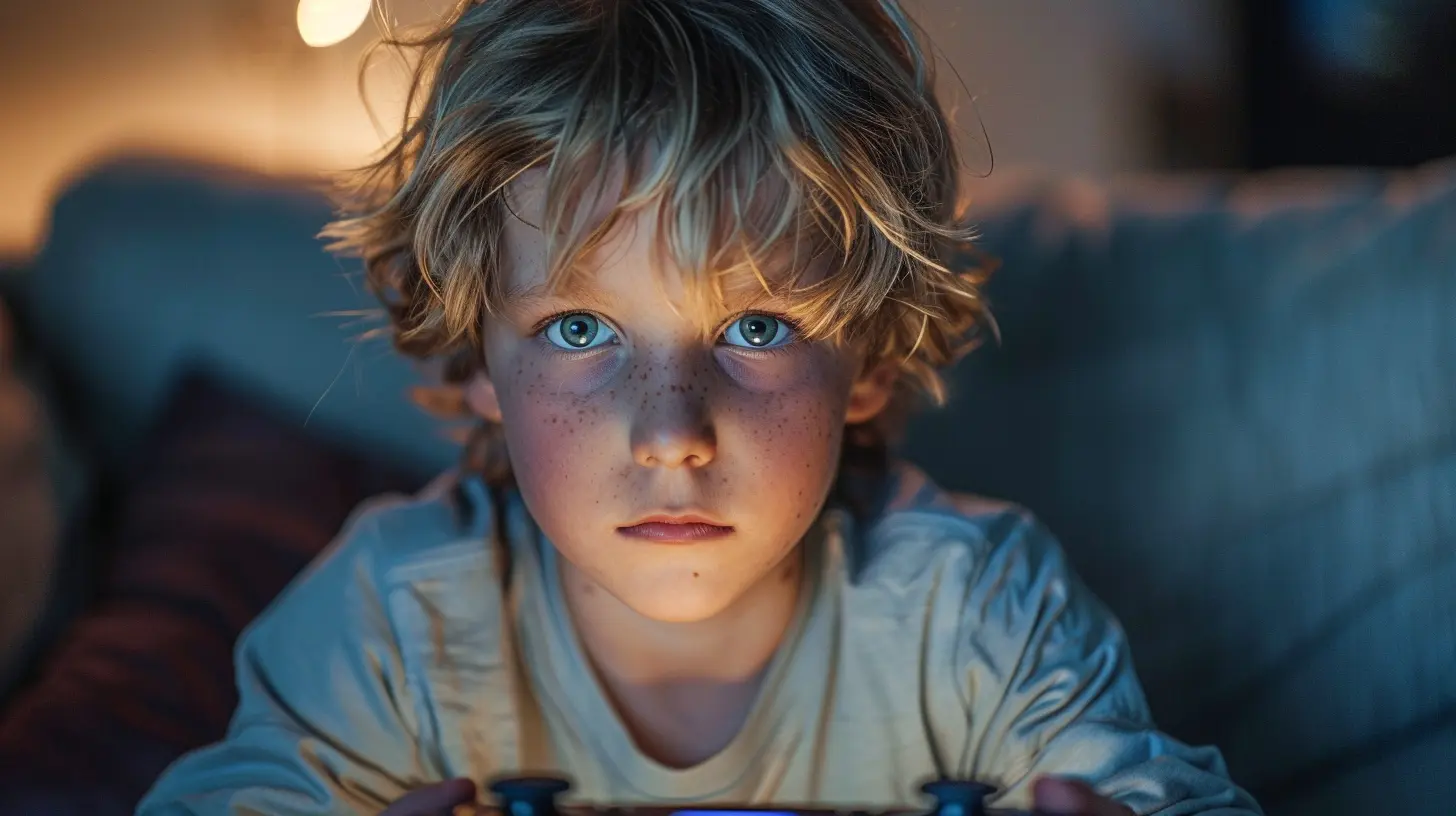
Why Kids Get Hooked on Games
Before we start pointing fingers, it’s worth understanding why kids are drawn in so deeply.Video games offer:
- Instant gratification – You win, you level up, you get rewarded.
- Escape – Got into trouble at school? Not fitting in? Games offer a world where they feel in control.
- Community – Online multiplayer games are now hangout spaces. It's like the digital version of the schoolyard.
It’s not that kids are lazy or rebellious — it’s that games are designed to be hard to put down. Ever heard of the term "dopamine hit"? Every little win in a game gives kids a pop of feel-good brain chemicals. It’s like fast food for the brain: tasty, but not always healthy in large amounts.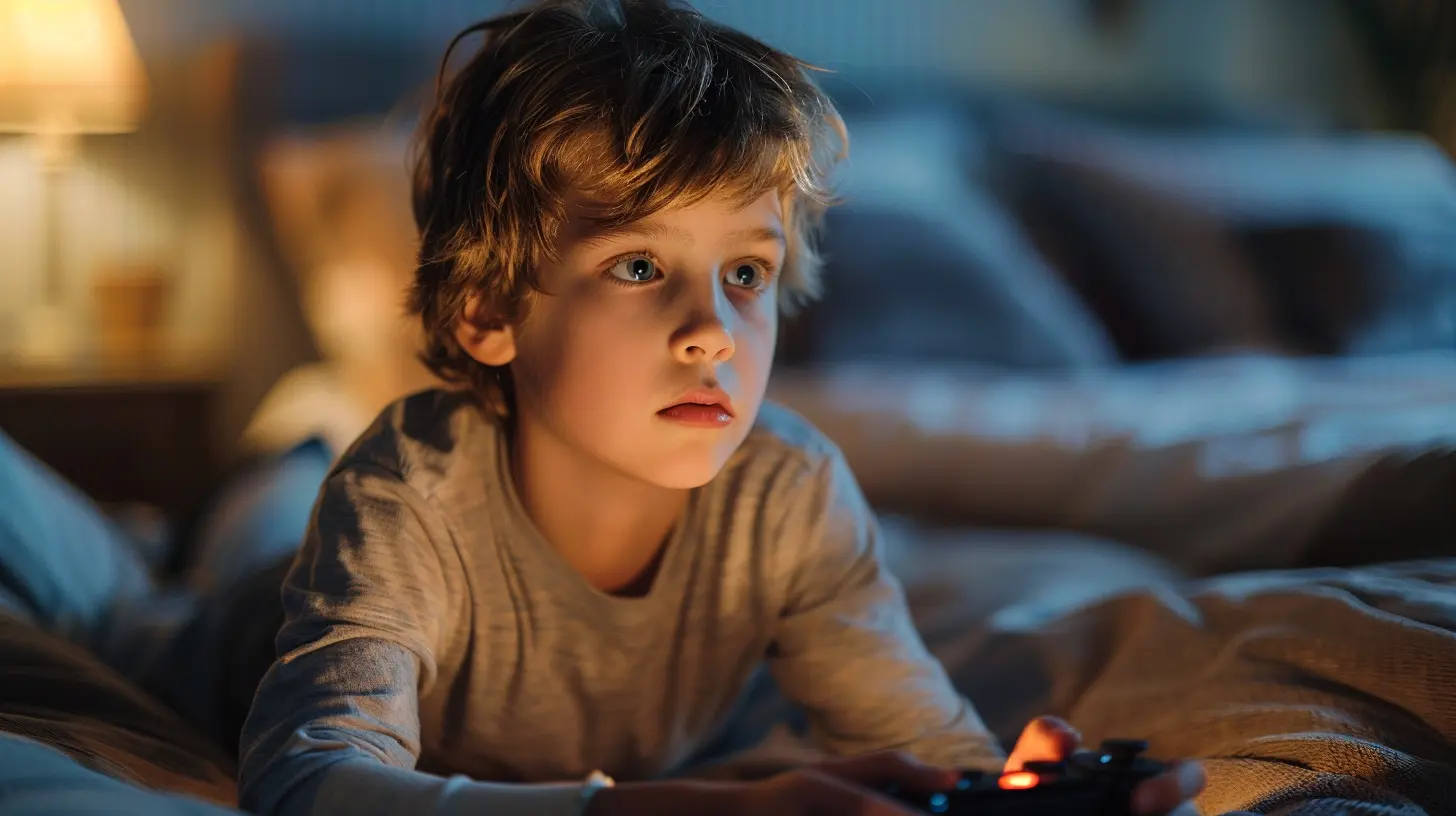
1. Losing Track of Time
One of the first and biggest red flags? Your kid says they'll play for "just 20 minutes"... then it turns into four hours.Sound familiar?
If your child constantly loses track of time or struggles to stop even after repeated reminders, it could indicate that they're hooked deeper than they realize.
🕓 Watch for signs like:
- Consistently playing longer than intended
- Missing meals or skipping showers just to keep playing
- Saying "just one more game" — over and over (and over again)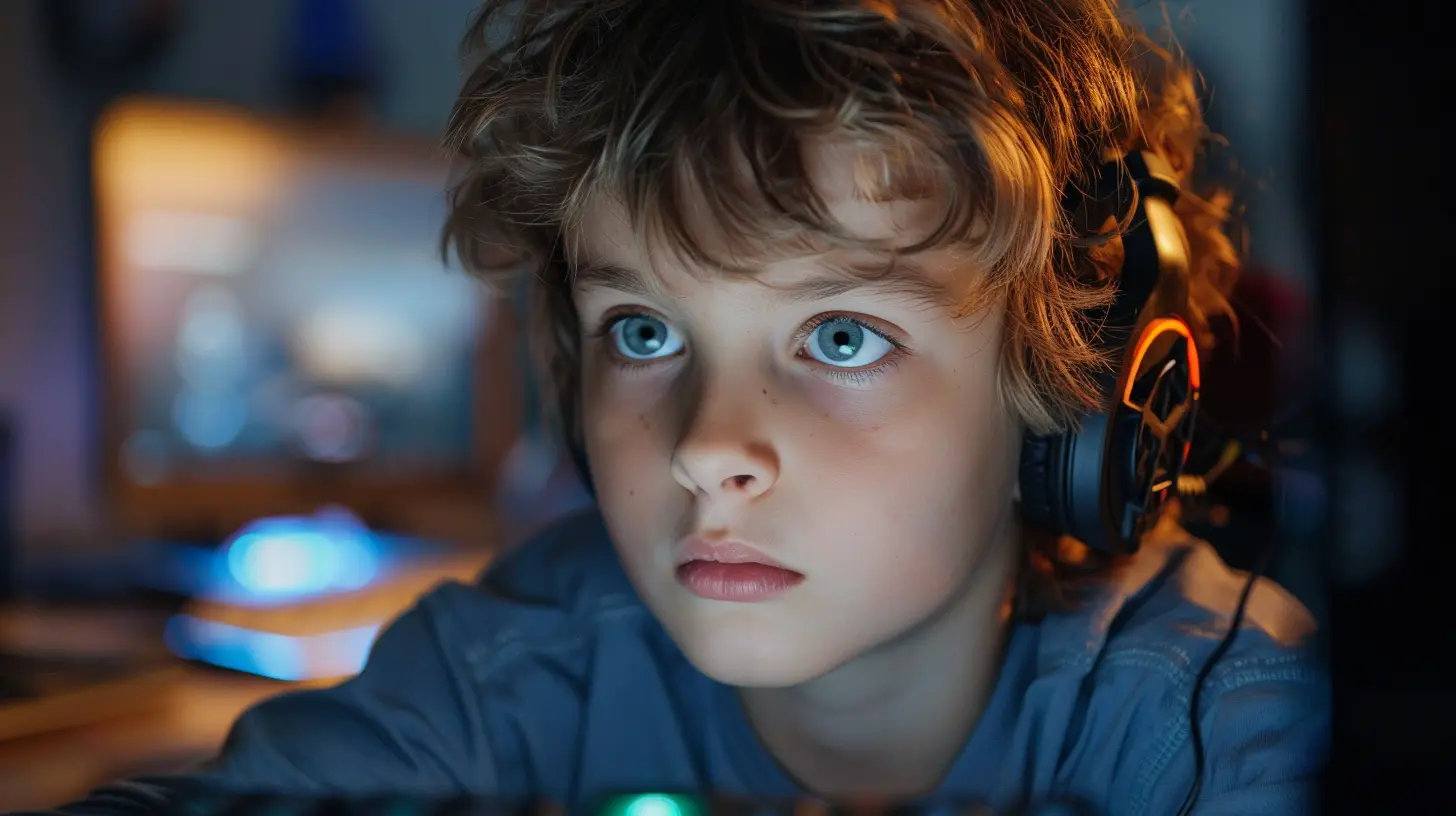
2. Withdrawal Symptoms When Not Gaming
This one’s a biggie. Gaming addiction isn’t just about the time spent on the screen. It’s also about how your child reacts when they’re not gaming.💥 Signs of withdrawal may include:
- Irritability, mood swings, or full-blown meltdowns when asked to stop
- Anxiety, restlessness, or sadness when unable to access games
- Constantly talking about games when not playing them
Think of it like taking candy away from a sugar-crazed kid — except it’s digital, and the tantrums might be even bigger.
3. Declining Performance in School
Has your straight-A kid suddenly started bringing home D’s and excuses?Gaming addiction often sneaks in by stealing time away from homework, reading, or even sleep. If they’re gaming late into the night, guess what’s going to suffer? Yep — their ability to focus during school hours.
📝 Look for signs like:
- Dropping grades or unfinished assignments
- Teachers expressing concern over attention or participation
- Falling asleep in class (or nearly doing so at breakfast)
4. Skipping Meals and Hygiene
When your child is skipping lunch just to finish a round of their favorite game, it’s time to raise an eyebrow.🍔 Watch for these physical/mealtime red flags:
- Forgetting to eat or refusing meals to keep playing
- Neglecting personal hygiene — unbrushed teeth, no showers, wearing the same clothes for days
- Complaints of headaches, eye strain, or wrist pain — all signs of excessive screen time
These are a little subtler but super important. A healthy body = a healthy mind = a balanced life.
5. Social Isolation
If your child suddenly stops hanging out with friends, family, or participating in hobbies they once loved, that's a major red flag.🎮 Signs of isolation include:
- Preferring virtual friends over real-life ones
- Avoiding family dinners or weekend outings
- No interest in sports, clubs, or outdoor play
Sure, online buddies are cool. But if the screen becomes their only form of interaction, it’s time to step in.
6. Lying About Gaming Habits
This part can sting a bit — especially if you're the kind of parent who believes in trust and open communication.🙊 Watch for:
- Hiding game devices or quickly closing screens when you walk in
- Lying about how many hours they’ve played
- Sneaking gaming time during the night or early mornings
If your child feels they need to hide their behavior, they probably already know it’s a problem.
7. Loss of Interest in Everything Else
Have you noticed your child no longer gets excited about birthdays, vacations, or even their favorite food?That's a concerning sign.
🎈 Think about:
- Lack of enthusiasm for anything unrelated to games
- Apathy toward family events or celebrations
- No interest in school trips, sports, or hanging out with friends
It’s as if the real world becomes dull, while the digital world shines bright. It shouldn’t be that way.
8. Using Gaming to Escape Emotions
Just like adults might binge Netflix or scroll endlessly through social media to forget a bad day, kids might use gaming to block out their emotions.🎭 Emotional red flags:
- Playing games to avoid sadness, anxiety, or anger
- Zoning out or “disappearing” into games after a bad day
- Saying things like, “I feel better when I game”
While it’s okay to unwind, gaming shouldn’t be the only coping mechanism they have.
So... What Should You Do If You Spot These Signs?
Alright, so you’ve nodded “yes” to a few of these sections. Now what?First of all — don’t panic. You’re not alone, and there’s a way forward.
Here’s what you can do:
✅ Have a Heart-to-Heart
Start with a calm, judgment-free conversation. Avoid blaming or shaming. Ask questions like:- “What do you like most about this game?”
- “Have you noticed how often you play?”
- “How do you feel when you’re not able to play?”
You’d be surprised how much they’re willing to share when they feel safe.
✅ Set Clear but Reasonable Limits
Instead of going cold turkey, try to set healthy boundaries:- Use a timer or parental controls
- Agree on gaming hours (after homework, before dinner, etc.)
- Balance screen time with other activities (sports, hobbies, family time)
Make it a team effort rather than an all-out ban.
✅ Reintroduce Other Fun Stuff
Sometimes kids fall back to gaming simply because everything else feels boring.Try bringing back fun alternatives:
- Family game night (board games, not video ones!)
- Outdoor adventures, museum trips, or sports
- New hobbies like drawing, music, or coding (yes, different kind of screen time)
Widen their world so they realize there's more than just the screen.
✅ Seek Professional Help If Needed
If things feel out of control — like your child becomes aggressive, depressed, or completely withdrawn — it might be time to call in the pros.Therapists, counselors, and even pediatricians can help assess the situation and provide guidance.
Final Thoughts
Gaming isn’t the enemy. In fact, with the right balance, it can improve problem-solving, teamwork, and even creativity. But like chocolate bars and late-night TikTok binges, moderation is key.Spotting and understanding gaming addiction is all about paying attention and keeping an open line of communication. If your child’s gaming habits are interfering with their happiness, health, and daily life, it’s worth stepping in.
The goal isn’t to take away what they love — it’s to make sure that love doesn’t take over everything else.
So, take a breath, grab a cup of coffee, and chat with your kid. You might be surprised at what you learn — and how much easier things become when you tackle the game of life together.
all images in this post were generated using AI tools
Category:
Parental Guide To GamesAuthor:

Tayla Warner
Discussion
rate this article
1 comments
Maxwell Banks
Thank you for this insightful article! It's crucial for parents to recognize the signs of gaming addiction in children. Your tips are a great starting point for fostering balanced gaming habits.
September 28, 2025 at 3:26 PM

Tayla Warner
Thank you for your kind words! I'm glad you found the tips helpful for promoting balanced gaming habits.
